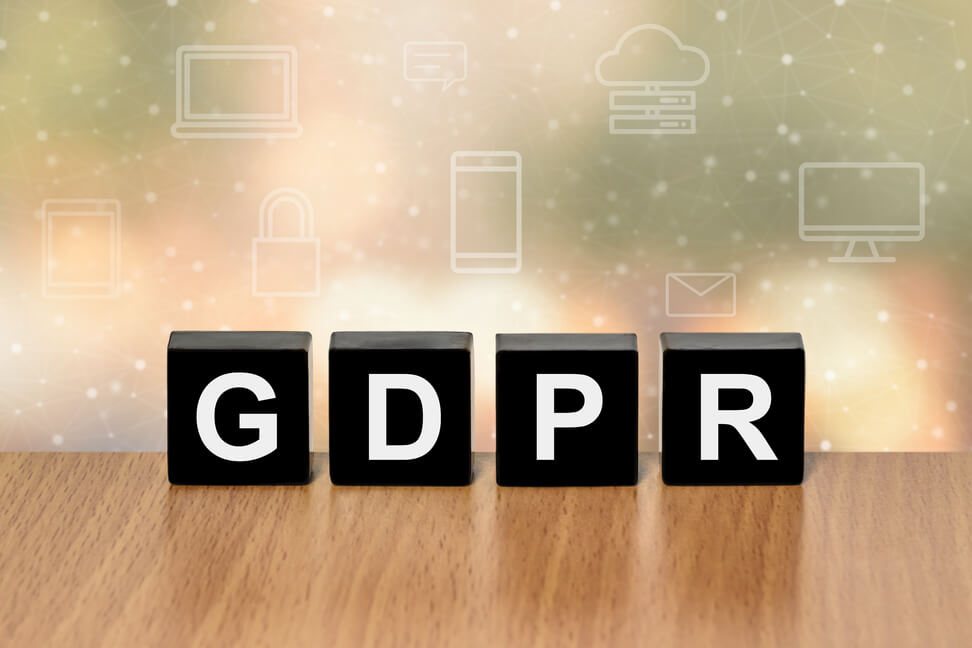The Present & Future Of Data Privacy Compliance

In today’s digital world, fewer words have been ushered more than those concerning data privacy and data compliance. Since everything is now online and there is virtually no limit to the kind of information we share about ourselves on different platforms and websites, maintaining a certain level of security in our lives is key.
Although more and more solutions are being found to hold our online information private and secure, it’s not enough for only a few companies to launch data protection software.
The protection of sensitive data is a must worldwide and needs to be addressed on a larger scale.
Nowadays, all online companies must offer procedures that can guarantee an adequate degree of security against data breaches, and thus ensure the kind of information governance that is truly required.
And since data privacy compliance is now on everyone’s lips and most of us have probably had contact with some data protection procedures, our aim in this article is to elaborate more on the subject while also discussing the principles of GDPR and data privacy issues.
What Is Data Compliance?
When talking about data security, data compliance immediately also comes to mind.
Data compliance refers to the practice of ensuring that sensitive personal information is managed in a way that will enable companies to meet enterprise business rules while adhering to legal and governmental regulations.
What Is Data Privacy?
Closely connected to data compliance is the notion of data privacy which refers to the proper handling of sensitive and personal information, including financial or intellectual property data. This implies meeting regulatory requirements and protecting the confidentiality of such data.
This is where data privacy laws and regulations step in and unify the procedures applied across a country (i.e., Canada), or an economical and political union, such as the European Union.
The European Union recognizes privacy for its EU citizens as an absolute fundamental right. In this regard, the EU has established a series of powerful data privacy regulations that are to be followed by all businesses.
Some of the most prevalent regulations are the GDPR, the CCPA, and the HIPAA, and they’re meant to take risk management to the next level when it comes to data privacy. Data privacy compliance is strict, and organizations in the EU need to abide by these laws and regulations. Otherwise, they risk penalties and fines.
What Are The 7 Principles Of GDPR?
The GDPR has taken center stage in recent years within the EU. This is, currently, the most important legal framework setting the guidelines for the collection and processing of personal information.
GDPR comprises seven principles that have been established to inform users of the spirit of the General Data Protection Regulation rules.
The GDPR principles are as follows:
- Lawfulness, fairness, and transparency
- Purpose limitation
- Data minimization
- Accuracy
- Storage limitation
- Integrity and confidentiality
- Accountability
When it comes to data privacy compliance, the GDPR has made history. By taking note of these principles, any individual or company can have a better understanding of what is needed in the sector of data privacy.
What Are Some Common Data Privacy Issues?
Ignoring the challenges that come with data privacy means turning a blind eye towards the entire online industry. Insights on data privacy show us that plenty of issues related to compliance are already arising, and proper risk management is of top importance.
Although numerous ways have been found to enhance information security, organizations are facing challenges that for many might feel like stumbling blocks.
That’s why, by asking the help of Internet Privacy experts, companies can receive guidance not only on how to respect the GDPR requirements but also on how to ensure proper organizational safety and privacy.
When we’re talking about data privacy compliance, we need to also talk about the cracks in the system. First things first, organizations need to acknowledge what these issues are to then find the appropriate solutions:
The Increasing Number Of Devices
As more and more devices are being used at the workplace, data management becomes an increasingly difficult task to tackle. Considering the inclusion of bring-your-own-device IT policies and the Internet of Things (IoT), properly managing all collected data becomes a flagrant issue.
Difficult Access Control
Unfortunately, technology cannot simply exist by itself. People and processes are also at the core of all organizational systems. In other words, it’s difficult for company leaders to keep track and accountability of user access within the organization. For this, pristine data architecture and data governance processes must be securely in place.
Too Many Regulations To Follow
Different datasets mean different data privacy regulations to follow — sometimes following all to a dot is easier said than done. For this, organizations must build sturdy processes, take data modeling seriously, and automate everything to the best of their ability.
We are talking about a data privacy strategy worth investing in when you look at the company’s long-term well-being.
Poor Data Visibility
An organization can barely protect data and become compliant with the regulations at hand if it can’t see all its data properly. Poor data visibility translates to poor data management and even poorer data privacy compliance, which can ultimately bring an entire company down.
For companies to achieve data privacy compliance, it’s essential they use high-profile tools that can enable them to discover and accordingly classify data. Simply stacking everything in the Cloud is not enough!
How We Can Help
These are only some of the issues concerning data security and the protection of personal data which can actually prevent proper compliance to industry regulations.
The key here is for companies to use their resources but also ensure that they have the proper guidance on how to approach this new era built around the need to protect personally identifiable information and customer data.
With our help, companies can minimize many possible risks regarding data breaches and focus on allowing operations to follow their regular course. All while allowing the average customer to feel completely safe with how their personal information is being handled.
In the end, data privacy compliance is not only necessary but also possible to the highest standards. We are only now catching a glimpse of the future.
Contact us today to find out more about how we can help you keep your company data compliant and your customers’ private information safe.
You might also like:






